How does California celebrate women’s history month? With two male senators
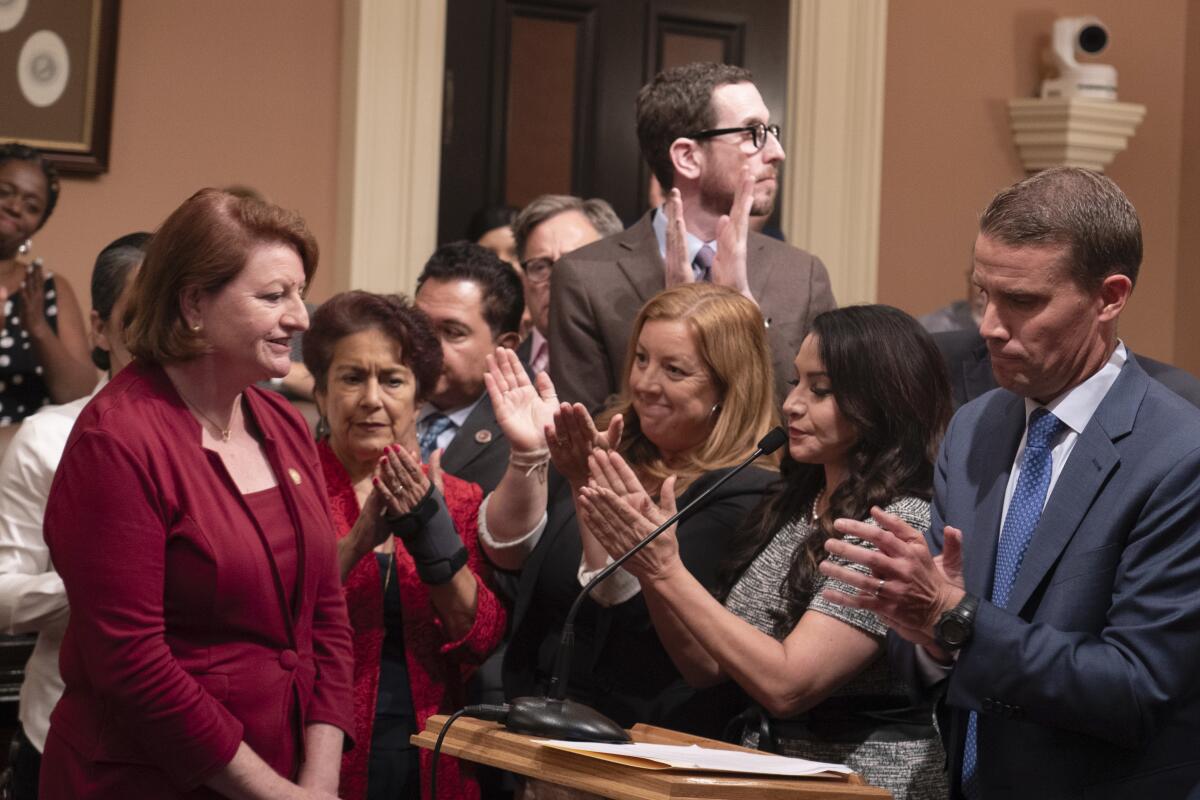
- Share via
The primaries are over and California has made one decision for certain: For the first time in 30 years, the Golden State will not send a woman to the Senate.
Welcome to women’s history month 2024, where even in California, progress feels like finding tampons in the public bathroom, then realizing they’re the kind with no tube.
For those blissfully not following election results, it looks like Adam Schiff or Steve Garvey will be joining Alex Padilla as our representatives in the higher house of Congress.
No hate to any of them. Gender obviously shouldn’t be the determining factor in who we vote for, despite what the “no balls to scratch” gentleman in a certain MSNBC viral video thinks.
But in an era of eroding gender rights, it does give pause.
Especially when you add to it that leadership in the state Legislature has gone all Y-chromosome. A few weeks ago, former president pro tem of the Senate Toni Atkins (D-San Diego), who in 2018 became the first woman to ever hold that job, stepped down due to term limits, giving it to the very capable Mike McGuire (D-Healdsburg). That leaves McGuire and Assemblyman Robert Rivas in charge.
Dante described the vestibule of hell as populated with those who couldn’t choose a side in life. I call that election 2024.
Atkins was the only woman — a queer one at that — to have held both of the Legislature’s top jobs. Her leadership was marked by a bipartisan respect, a strength and wisdom that only a lesbian from the mountains of Appalachia could summon in a place known for rivalries as intense as they are petty.
If you don’t know Atkins’ backstory, it’s a lot like Dolly Parton’s — smart but poor kid in a backwoods cabin, no running water, few prospects, and a lot of heart.
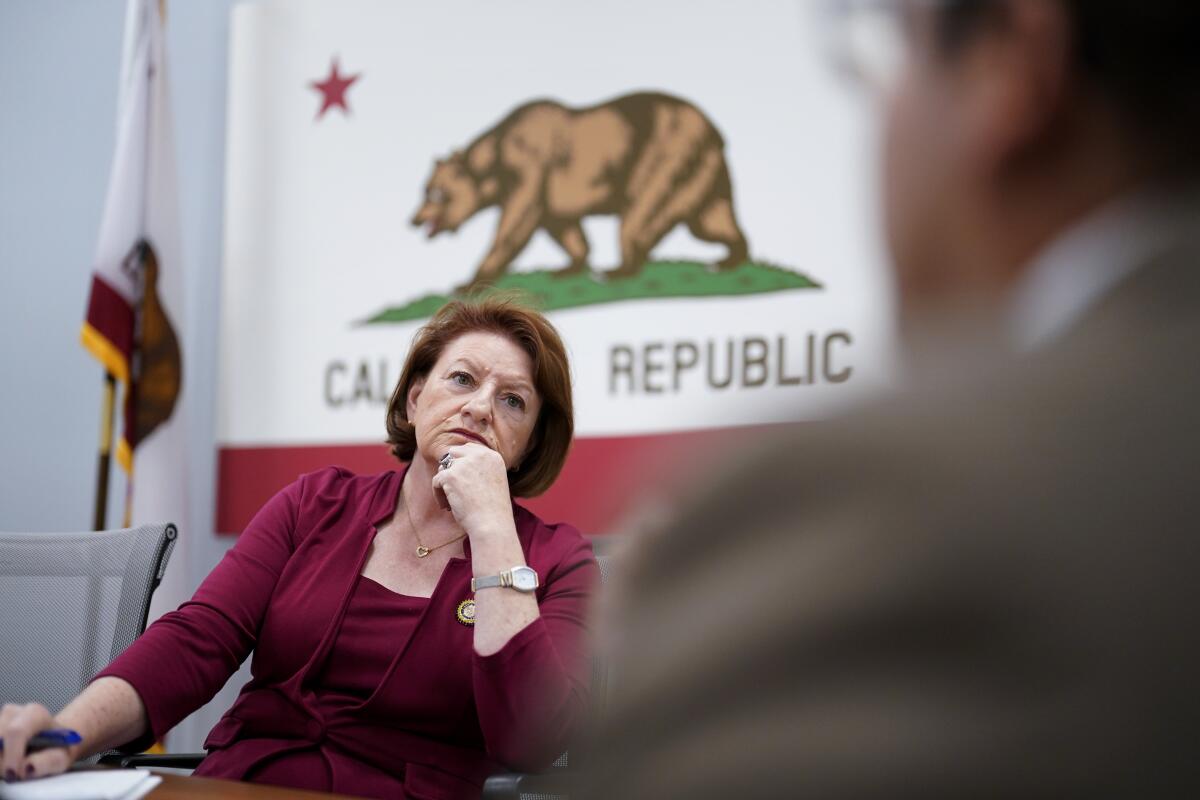
She’s got grit, as they say — and doesn’t hoard it for herself. Atkins made sure other women had power, giving them leadership positions on key committees and helping them rise.
“Toni has taken more arrows to the chest than we will ever know,” recently elected Sen. Aisha Wahab (D-Hayward) told me, yet she’s “still willing to include you even if you are seen as the other.”
Now, of course, Atkins is running for governor — trying to become the first woman to hold that office in California (as are Lt. Gov. Eleni Kounalakis and former Controller Betty Yee).
Which brings me to the real point of this column.
It’s not the number of women in power. It’s the quality.
Thankfully, California has quality, the kind of women that don’t just fight to win, but fight for change.
You won’t find many Marjorie Taylor Greenes with their Jewish space lasers around the Golden State — at least, in office.
Instead, you will find Oakland Democrat Buffy Wicks — who in 2020 broke motherhood boundaries by, four weeks post-C-section, bringing her newborn daughter to the floor of the Assembly to vote when her colleagues refused to allow her to do so remotely.
“What I am going to do, leave her at home?” she quipped recently when I asked her about that.
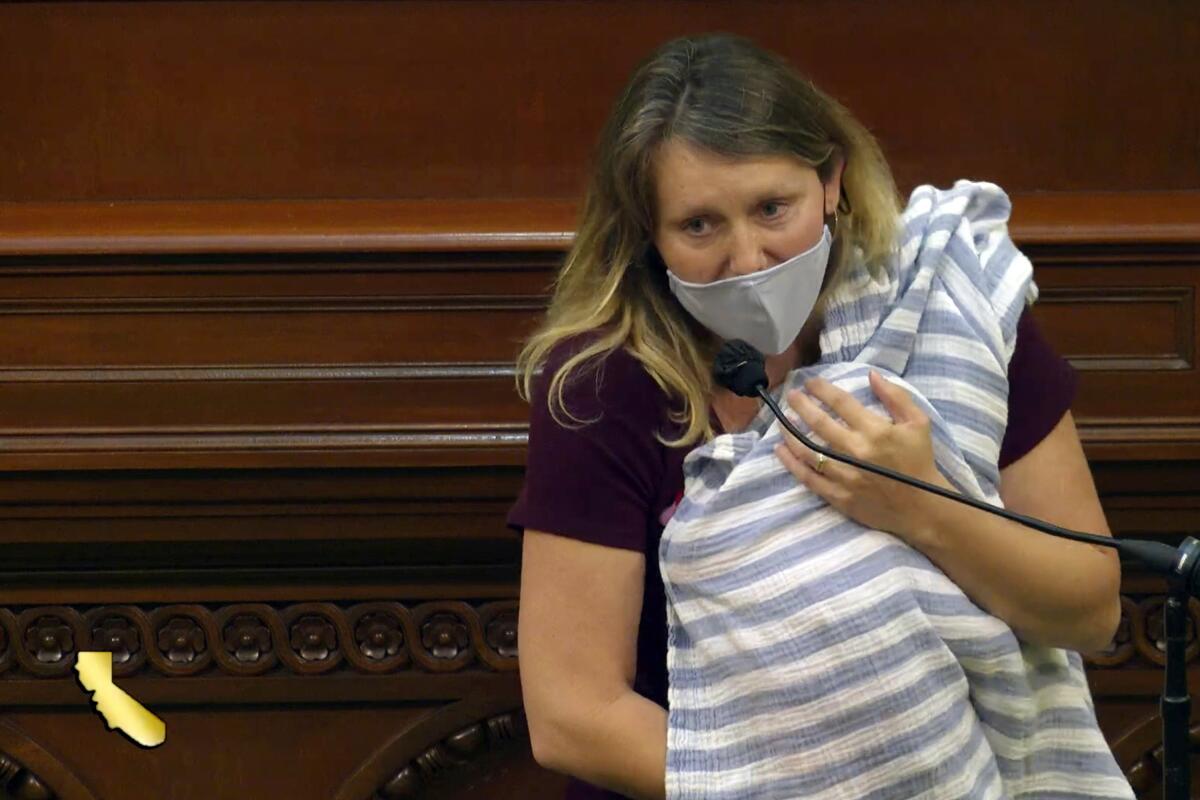
You’ll find Karen Bass — first female Black mayor of Los Angeles, first Black woman to serve as the speaker of any state legislature, not just California’s.
And, Atkins told me, one of the first to reach out to her when she became speaker herself, telling Atkins she knew what it felt like to be the only woman in the room.
“We are still friends today,” Atkins said.
You’ll find women like Wahab, the first Muslim and Afghan American to be elected to the state Senate. She grew up in foster care after losing her parents (her mom died when she was young, her father was murdered in a robbery).
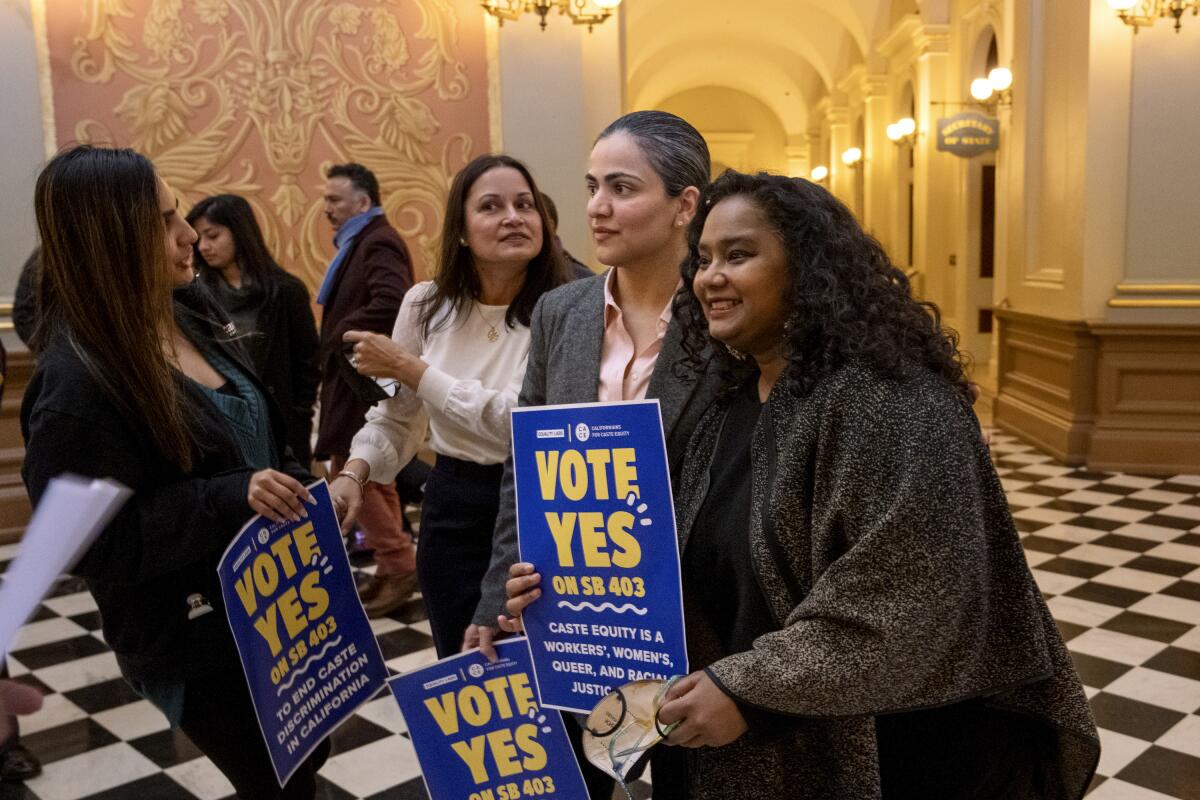
Those early experiences left her acutely aware of the nexus of generational trauma and public policy, and a belief that, “There is no point for me to waste time, power and privilege on fear.”
You’ll find veterans like Nancy Skinner (D-Berkeley), who in her spare time from reforming the justice system and protecting kids on social media joined with colleagues to change what it meant to be a woman in the Legislature, because, as she puts it, “We have some catching up to do.”
As the news media continues to spiral under financial pressures, the obvious solution — preventing internet platforms from profiting from news content without payment — lacks public support.
About a decade ago, the few women under the dome — there were less than two dozen at the time — decided they wanted to accelerate that catching up and set out to get more females elected, not just ones from their own party or background.
So the women’s caucus, of which Skinner was one member of a formidable group, began not just recruiting other women to run — but vetting candidates to make sure they could win. That didn’t mean gate-keeping for a certain type, just making sure they were “viable,” Skinner told me.
Money, honey.
The caucus started helping candidates with mentoring and the backing to raise cash — even from skeptical donors who were still more comfortable with cigars than children.
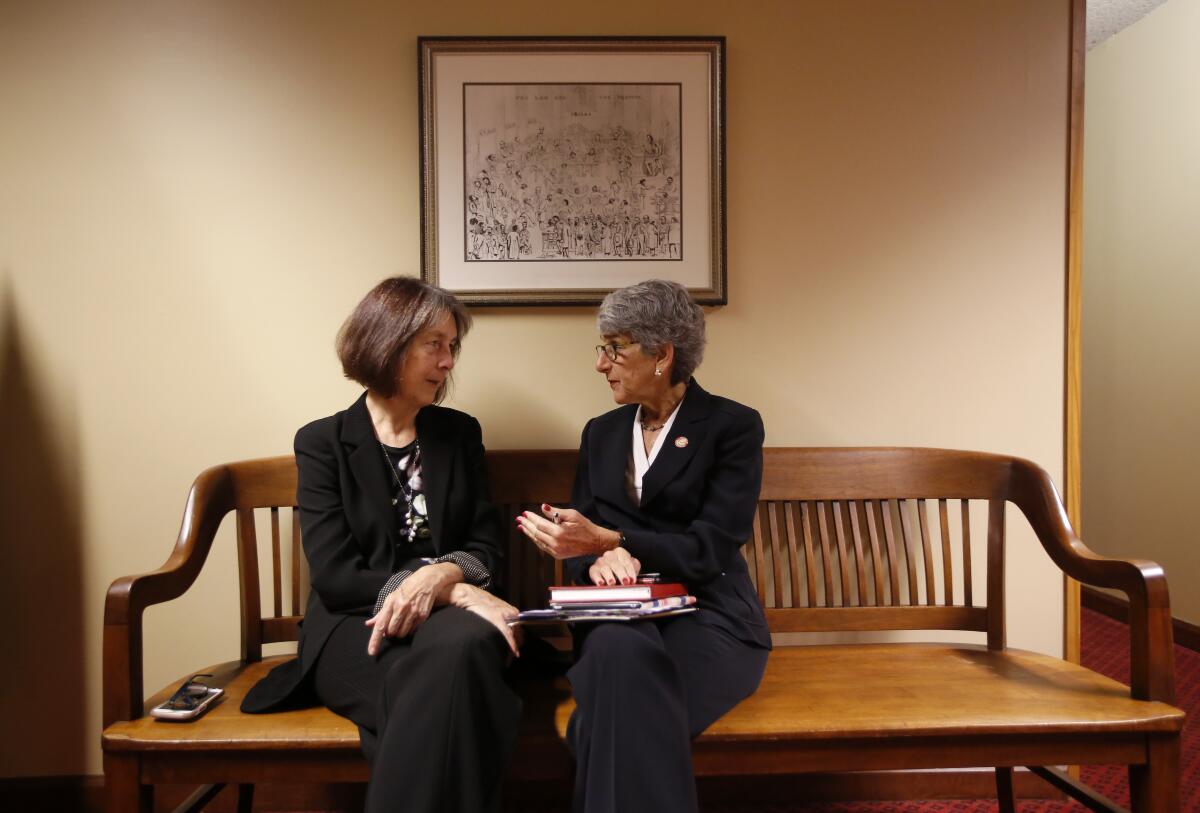
Because before the vote there is the campaign, and if you can’t pay for it, you can’t win. And men didn’t want to give money to women, because they didn’t believe they could win, a circular logic that kept women sidelined.
“Whether it was conscious or not, there was that kind of bias that women candidates can’t raise the money,” Skinner said.
But women like Skinner and her caucus see viability differently than the establishment. That has led not only to more women in office, but diverse women.
Skip ahead 15 years and the effect of that intentional focus from the women’s caucus is clear.
There is currently a record number of women in the state Legislature, 50 out of a total of 120 possible spots. That’s about 42% women, in a state where half the population is female.
Organizations such as Emily’s List use the same approach to making sure female candidates have money, and across the country, the almost-equal ascent of women continues.
Other states, however, have done better than California. Nevada, believe it or not, is the only state to have had a majority-female legislature. Thirty-two states have elected female governors, sometimes more than once.
And nearly everywhere, it’s still controversial to show up with a baby, or be a woman with a wife, or in some places, even — as Missouri recently suggested — show your shoulders.
“It’s great to see,” Atkins says of California’s progress, and the progress of women in general.
But still, “The room doesn’t always act like we belong there.”
More to Read
Sign up for Essential California
The most important California stories and recommendations in your inbox every morning.
You may occasionally receive promotional content from the Los Angeles Times.















